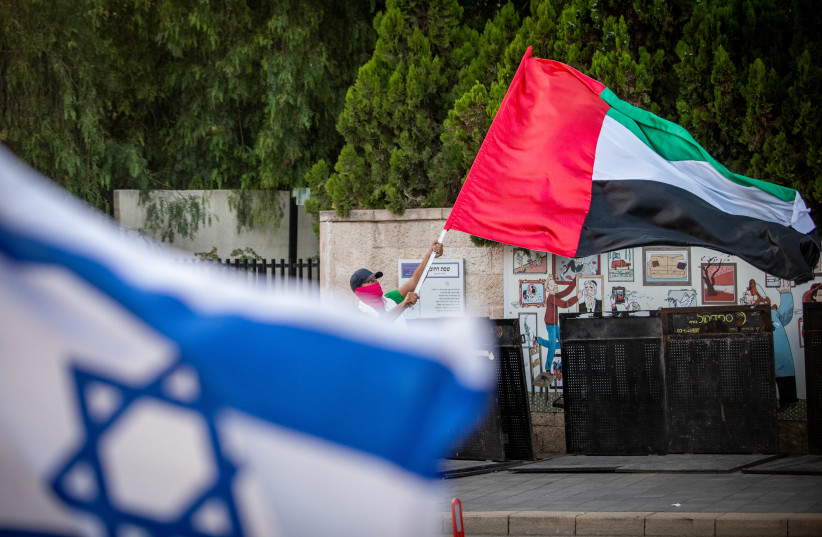Israel and the United Arab Emirates concluded a free-trade agreement on Friday, the first such financial treaty between the Jewish state and an Arab one in the Middle East.
“This is an important moment in relations” between Israel and the UAE, Prime Minister Naftali Bennett said, adding that the FTA strengthens burgeoning Israeli-Emirati ties and will “significantly upgrade economic cooperation for the benefit of the citizens of both countries.”
Israel and the UAE normalized ties in 2020 through the rubric of the US-brokered Abraham Accords, pledging to build people-to-people ties based on shared projects, such as expanding economic opportunities.
The FTA will lead the way to “more trade, more jobs and good products at lower prices,” Bennett said.
Some 95% of goods produced by both countries will be covered by the agreement, including food products, agriculture, cosmetics, medical equipment and drugs.

Bennett explained that he discussed the agreement last month with Emirati crown prince Sheikh Mohammed bin Zayed in the Egyptian resort area of Sharm e-Sheikh.
“We agreed to accelerate the process and bring it to a conclusion within days – and so it was,” he said.
The conclusion of talks for the agreement and the initial signatures that were placed on the document come just days after Israel hosted the UAE foreign minister and three others from Arab states, along with US Secretary of State Antony Blinken, at the Negev Summit.
Foreign Minister Yair Lapid said that the FTA, in the spirit of the Negev Summit, was a first of its kind for Israel.
Ministers at that meeting called for continuous cooperation that would “improve the lives of the citizens of the State of Israel and of the peoples of the region,” Lapid said.
Economy and Industry Minister Orna Barbivai, who placed an initial signature on the document, said that “the conclusion of the negotiations is a significant and historic milestone in bilateral relations.
“We will continue to assist the Israeli business community to establish commercial ties in the UAE via the free-trade agreement, the ministry’s economic attachés, and additional assistance tools that the ministry will put at their disposal,” she said.
